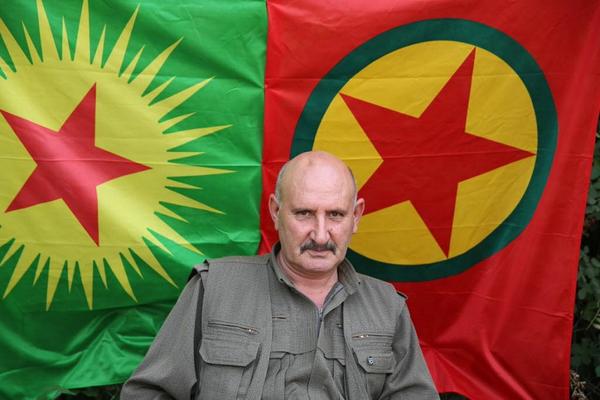
Sabri Ok, a leader of the Kurdistan Workers Party. This guerrilla group has taken up the fight vs. ISIS in Iraq despite being considered a terrorist org. by the US gov’t. They have effectively held back ISIS advances in several locations. Photo: Dominique Soguel, Christian Science Monitor
The U.S.-backed fight against ISIS in Iraq is gathering some unlikely allies, including a guerrilla force the State Dept. has labeled a terrorist organization. But when it comes to repelling the deadly insurgence of ISIS, is the enemy of the United States’ enemy its friend?
The guerrilla group Kurdistan Workers Party (PKK) is emerging as a key player in the fight against ISIS. Based in the Kurdistan region in northern Iraq, PKK’s traditional antagonist has been Turkey. Its founder, Abdullah Ocalan, is imprisoned in neighboring Turkey. Yet in 2013 PKK reached a detente with the Turkish government, who have scaled back attacks against the group’s bases in Kurdistan.
Recently PKK has found itself on the front lines against ISIS. Kurdish authorities singled out the group in helping recapture control of the city of Makhmour. PKK fighters also helped carve out a route for humanitarian aid to the Yazidi minority who had been targeted for eradication by ISIS. PKK’s role in the rescue is being noticed. A Yazidi who had been stranded on Mount Sinjar told Christian Science Monitor, “We thank Obama for the airstrikes but he must remove the PKK from the terrorism list. They saved our lives.“
This summer PKK military forces have been identified in five cities in northern Iraq fighting off ISIS. The group has also seized weapons from its engagements, including U.S.-manufactured military vehicles. Sabri Ok, PKK senior official, stated “The most logical approach would be to send ammunition and guns to those forces who have resisted the Islamic State, which proved they can resist IS attacks. Our forces are the ones that are really on the ground defending the people and the United States should see that.”
Yet the U.S. government considers PKK a terrorist group, and has accused Ok of being a narcotics trafficker.
Should the U.S. rely upon local groups such as PKK — and other recent adversaries such as Syria and Iran–to head up the resistance to ISIS, despite involvement of some unsavory characters? Especially if it will prevent the need to send American troops? If the answer is yes, should the U.S. support groups like PKK in the current struggle, only to hunt them down once the Iraq situation plays out? Can a terrorist group be a force for good under certain circumstances?
All tricky questions without easy answers. At minimum PKK’s capabilities and intentions should be fleshed out, along with a reevaluation of its terrorist organization status. While giving PKK some leeway in the charge against ISIS may not be the most palatable option, it seems Iraq will need all the friends it can get.